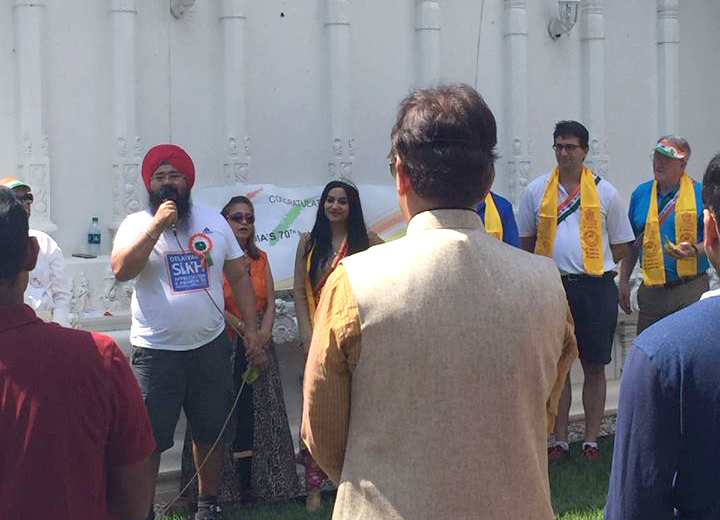
by blogadmin | Sep 2, 2017 | Blog Post, Media Publishing's, Year 2017
My father joined the Indian Army in 1948, a year after British India was sliced in two. The earth around him shook, not from the impact of five rivers, but from the numerous blood rivulets that flowed through the furrows of the Punjab’s fields, bazaars, children’s playgrounds, and streets and gushed from the Punjabi homes’ brick drains. It was alleged that it was the climax of the English colonial chess stratagem: Divide and Rule.
“Why did the earth shake?” I remember asking him some years after he had retired.
“Freedom fighters worshipped Mother India and gave their blood and lives as an offering to her,” he said, “but there were others who never took any pain in doing anything for the country — and had enjoyed their time behind the cover of religion. When the British decided to free India, these religionists forced a historic paradox: freedom fighters, dead and alive, were defeated by their own countrymen, by these religionists who were determined to operate on the mother and create another one out of her.”
“How did they do it?” I wanted to know. He didn’t answer for some time.
“August was running as always but this time, just when it reached the middle of its run when forefather Time raised both hands and united them, the Mohammeds and the Mahatmas and the Pandits of British India began the surgery to create two mothers from one. They started to amputate the body parts of the existing mother. However, they took care of only those parts they had a sense of belonging to. They only put those areas under the knife that had already been donating blood for the country,” my father replied, voice breaking.
“Why didn’t the Punjabis and Bengalis take precautions?” I asked wisely.
“We are one people, one country, we were told by them through powerful and seductive slogans that proved to be empty rhetoric,” he responded. “We were asked to stay put in our homes in the warmth and security of our ancestral places. Then, suddenly, the surgery began: no anesthesia, no tranquilizers. The separation started, and with it came the rapes, looting, and macabre killings, and we could see the remnants of hundreds of thousands of our people lying strewn about by the time it was over.
“In a matter of hours and days, kaka, millions were made refugees, tens of thousands were raped, and hundreds of thousands were killed. Grandfathers, fathers, and brothers were so helpless that in some cases, in acts of mercy, they themselves killed the women of the family. It was a pain those leaders never felt and the world has been never told about.”
The successors they mentored corrected the mistake by slicing it again to create the third mother in 1971-72. English and the “Divide and Rule” doctrine had certainly survived, even though the Englishmen had left.
If you thought that was enough, no; they weren’t done yet.
One of India’s Prime Ministers, their progeny again, almost succeeded in slicing the mother country yet again. Thirty-seven years later, while justifying a state-sponsored Sikh genocide to avenge his mother’s assassination, Rajiv Gandhi said, “When a big tree falls, the earth shakes.” That the “Divide and Rule” was clearly on his mind, before and at the time he said it, and on the minds of the coterie around him, was clear from the election results. 1n the December 1984 polling, only six weeks after the Sikh genocide, Gandhi’s Congress Party won a thumping majority of 404 out of 533 seats.
Whenever my father narrated the partition tales, he would invariably say, “When the British freed India…” That was different from blood-stirring tales of freedom and struggle I had read about and heard in speeches on TV. Thinking about it later made me curious, and I decided to do some research. It didn’t take me long to understand why he said what he said.
The colonies in Asia and elsewhere were the result of European imperialism. The two world wars in the last century had weakened them economically. The wars also produced the arrival of two more giants on the global scene: the United States and the USSR. The Second World War also shattered the impregnability aura that had haloed the British Empire earlier. The defeat of colonial powers by Nazi Germany at many places had fatally undermined the myth. Japan took over colonies in Southeast Asia during the war. In many colonies, as in the case of India, too, the rulers had made promises of independence to nationalists in return for their help in the war.
India’s first Sainik School (changed into a public school soon after) founded in Nabha was the result of such economic inducement promised by the British to Punjab in exchange for military recruitment. I know because I went to that boarding school. The Punjab Public School (PPS), established in 1960, is widely known today for sending most commissioned officers — outside of RMS, Dehradun — to the Indian armed forces.

On June 2, 2012, I hosted a very well-attended reunion in Delaware of PPS alumni from across the United States, Canada and India. At that time, PPS’s first alumnus became India’s army chief. The newly minted Gen. Bikram Singh called in from New Delhi to thank the alumni and add to our festive spirit.
Here, in this school, I lived, played and studied with students from J&K, UP, Bihar, Bengal, Assam and many other parts of India. The school sent me regularly on travels and treks to many far-flung places in India — both remote and metropolitan. Providing us students with opportunities to learn from adventure and acclimatization was the school’s underlying mantra for a classy education.
The hymn made a home in my heart. No surprise, then, that my Bharat darshan continued after PPS. I enjoyed living in different parts of India for work, studies, and business, and, in the last two decades, showing my US-born children one of the oldest civilizations on the planet.
It is my love for this land even with its open sewers beggars—that I still remain its citizen so many years after I became a permanent resident of the US. The US is a great country and I love it, but cannot abandon the mother in whose lap I was raised.
Earlier, when I was single, and after I returned to India from the UK with a master’s degree in business to complement my computer engineering studies, I worked in Bangalore and Hyderabad before coming to the US in 1999. Tekstrom, the software testing company that I founded on arrival presently has a campus in Bangalore.
My conclusions from long and wide-ranging experience tell me that the English still rule our nation even though there are no English in India’s government, parliament, and judiciary. If anything, the inequity has become more rampant and flagrant. The mental slavery still persists. An Indian is happily obsequious to a white while he finds it back-bending to respect a colored. This is not only on display back in India but is visible among migrated Indians here in the US as well.
A few months ago, the governments of 40 African countries condemned the Indian government for the growing racial and xenophobic attacks on Africans in India. Let me remind you that the imperialism of the past which India is celebrating its 70th year of independence from was similarly racist.
To put our independence, and its track record since 1947, in perspective, remember that India was once solidly against apartheid in South Africa: something for which India paid a heavy economic price. Recall Mahatma Gandhi’s South African sojourn!
At 70, we are no longer an infant democracy. However, we are still like that elephant, the one India has historically been compared to, the elephant that moves slowly because it is carrying too much potential. Since independence, its movement is becoming even slower, perhaps because the untapped potential is becoming larger.
Except in cricket, the game the Englishmen gave their colonies, including India, we have no commanding presence in any sports discipline. During the Raj, we were undisputed world field hockey champions. The two Noble prizes we won during the Raj were in Literature and Science; and far less apart from each other are the two we won in the last 70 years — both Peace Prizes. We are still ignorant of punctuality etiquette and that is true of Indians regardless of where they live. We are never in a hurry to fulfill our promises.
Justice is almost at a standstill in India despite the fact that India supplies the largest pool of computer software labor to advanced countries. During colonial rule a case used to be decided in 10 years. Last year, chief justice of India, Justice Thakur, lamented that, “Now, cases and litigation have increased. People’s expectations have also gone up. It is all becoming very difficult for us and this is why I have repeatedly urged them (government) to pay attention to these problems.”
To make the matters worse, law and order is almost absent in India. Who knows better than the NRIs whose properties in India are always greedily eyed by unscrupulous elements? In my case, someone occupied a vacant plot my father had bought in Punjab decades before he passed away, and my continuing ordeal to vacate the completely illegitimate occupation by total strangers is beyond the scope of this piece.
The powerful can get away with threatening, looting, raping, beating, and killing. Perpetrators of 1984 Sikh genocide still haven’t been punished. They have been honored, given high positions, and publicly feted. We are still not a casteless society as was envisaged. It is still either a curse or an entitlement depending on the last-name of the parents who gave you life.
Gender discrimination is practiced at all levels almost openly. Some parents still advocate killing a female child before or after birth. Many have experience doing it. The instances of rape and rape threats are increasing at an alarming rate. Even when the daughter of an army officer killed on the border dares to speak, she is openly threatened with rape. It is alleged that the present ruling party has an exclusive troll army to beleaguer and threaten those who dare to speak against them and their policies. A husband or boyfriend may incur the ire of India’s “morality brigades” if they even hold their partner’s hand in public. When watching a movie those who don’t get up in cinemas when the national anthem is played may be in for a “quick lesson” in patriotism.
Only law enforcement and bureaucracy match the media’s probity in India.
With disappearing internal security, the security at the borders too has become iffy. Pakistan-sponsored jihadis easily sneak in and indulge in violent activities and inciting violence. Their penetration and reach is growing deeper with time. Their attacks have ranged from J&K to the parliament to hotels and bakeries. More recently they have blatantly attacked military bases and city police stations.
Our ongoing historic feud with Pakistan has cost us dearly in many ways. And if our ability to contain tiny Pakistan is an indication, imagine our future with colossal China, which is seemingly in a mood to throw its weight around because it doesn’t think much of India and its current leadership.
If the Indian government can suddenly demonetize the existing currency, and not worry even a bit about the inconvenience and scores of deaths in its wake, why can it not control population? This is India’s number one problem, and I can’t respect, or consider honest, any Indian leader who is not in favor of promulgating population control with equal vehemence.
The day Indians gain the ability to shun and shoo politicians who use caste, language, religion, river waters, gender, reservation, and other divisive vote bank tactics, is when India will have indeed won independence. That day India will be the Kohinoor of the world. It will be that precious golden sparrow it once was. Until then, my each heartbeat will hum the legendary words of Gurudev:
“Where the mind is without fear and the head is held high
Where knowledge is free
Where the world has not been broken up into fragments…
Into that heaven of freedom, my father, let my country awake.”
– – – – – – –
This column was published online by the www.setumag.com on Sept 02 2017.
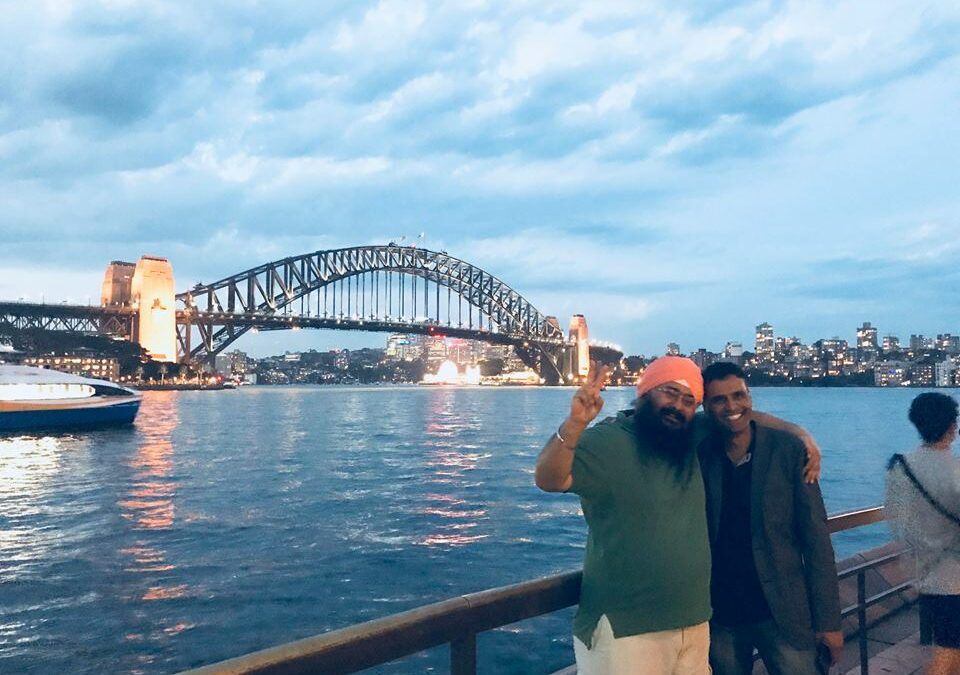

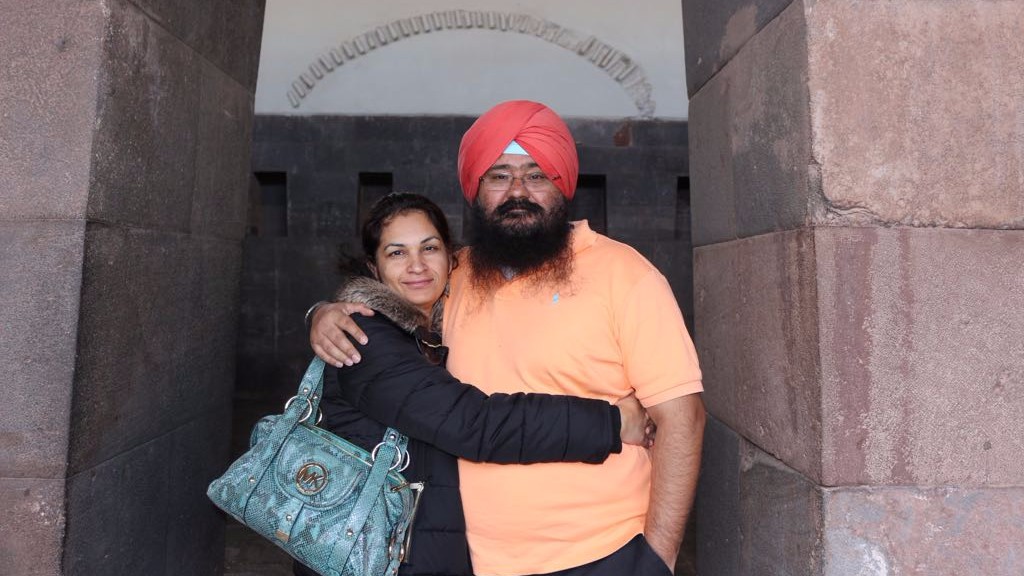
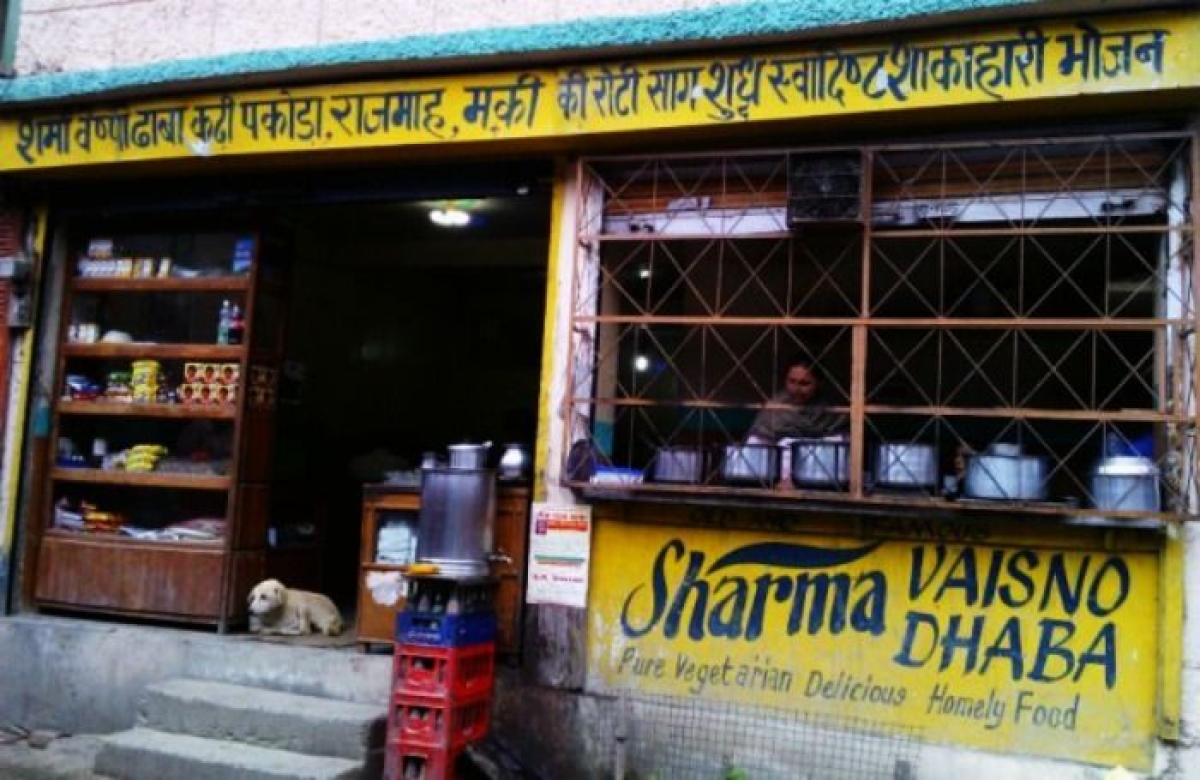 Representative picture of a dhaba.
Representative picture of a dhaba.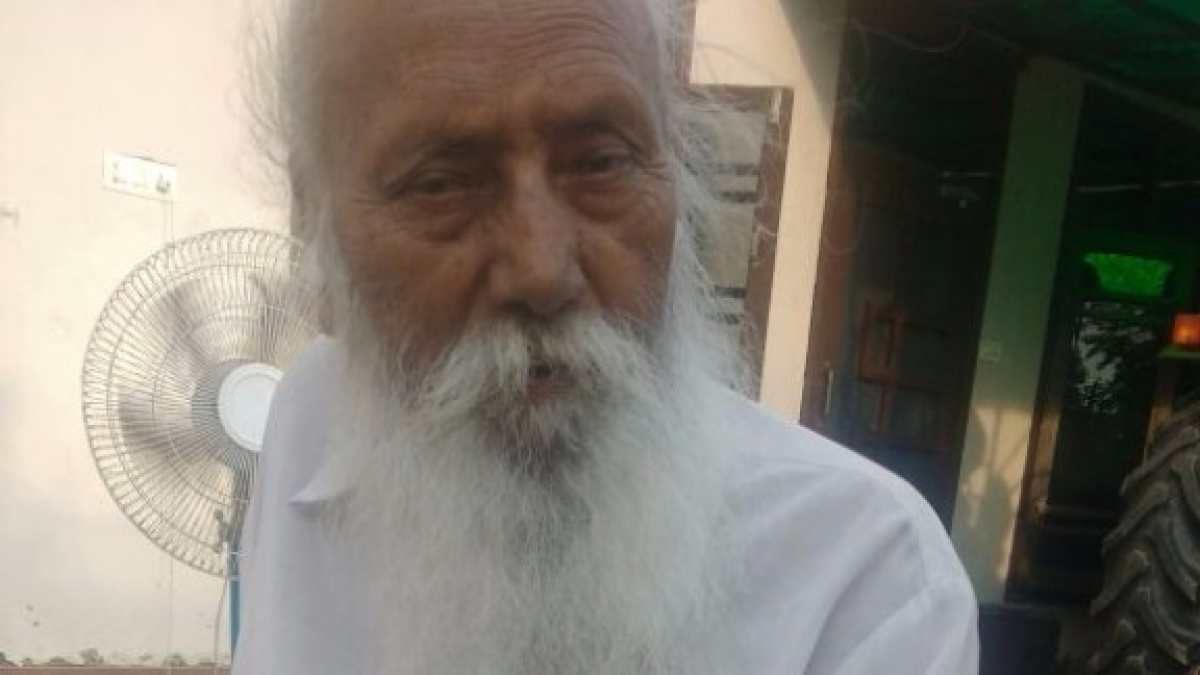 Charanjeet’s Uncle
Charanjeet’s Uncle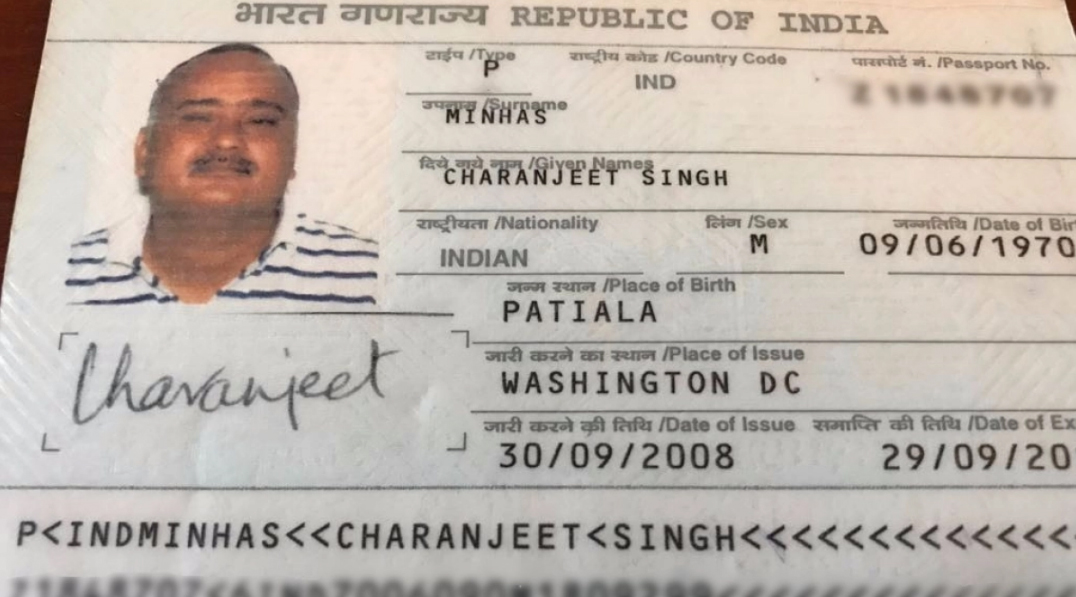 Charanjeet’s passport with a picture without beard and turban
Charanjeet’s passport with a picture without beard and turban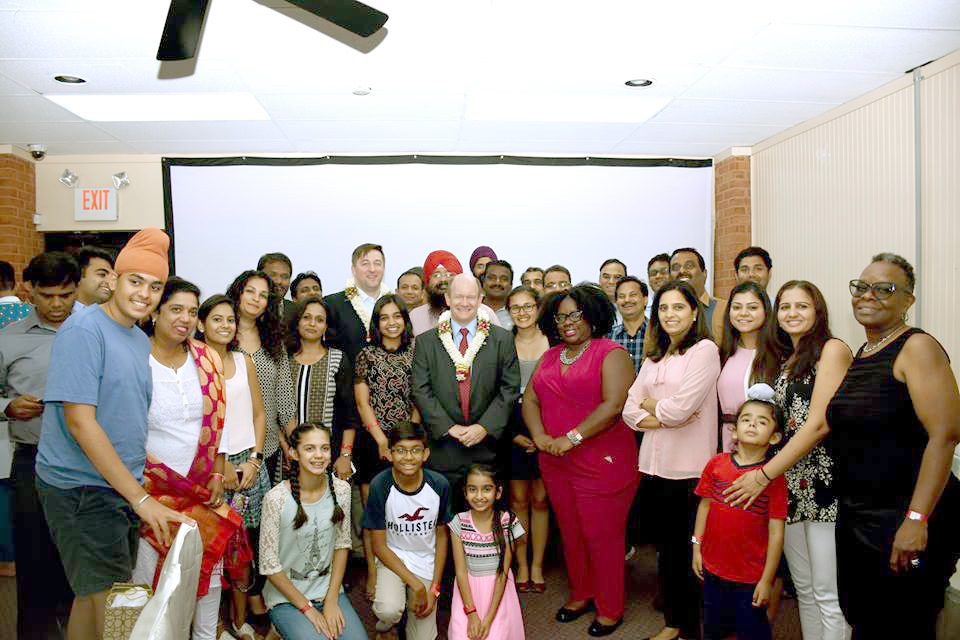
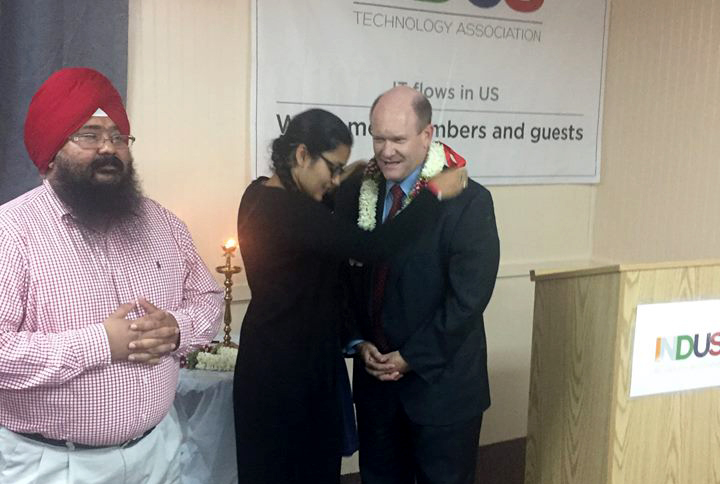
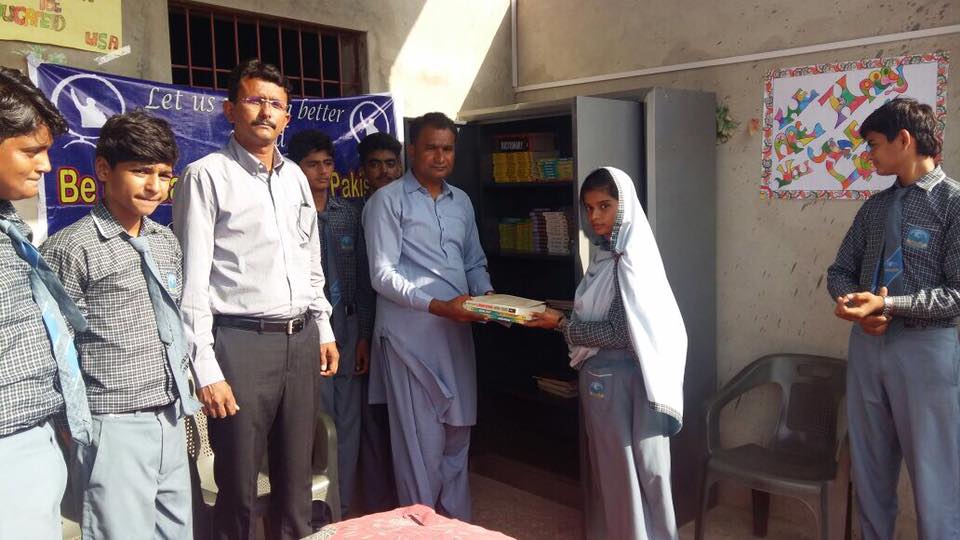

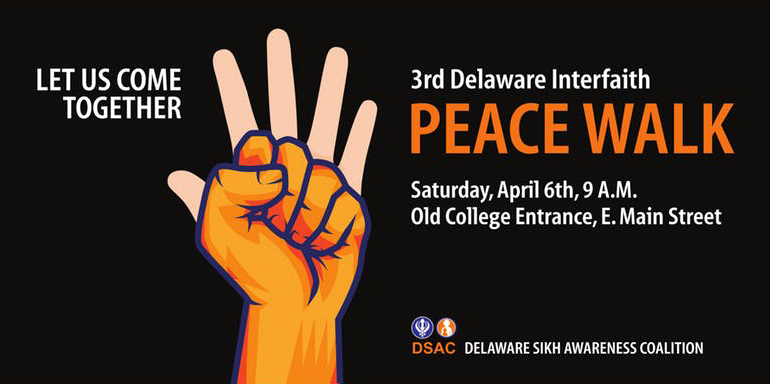
Recent Comments